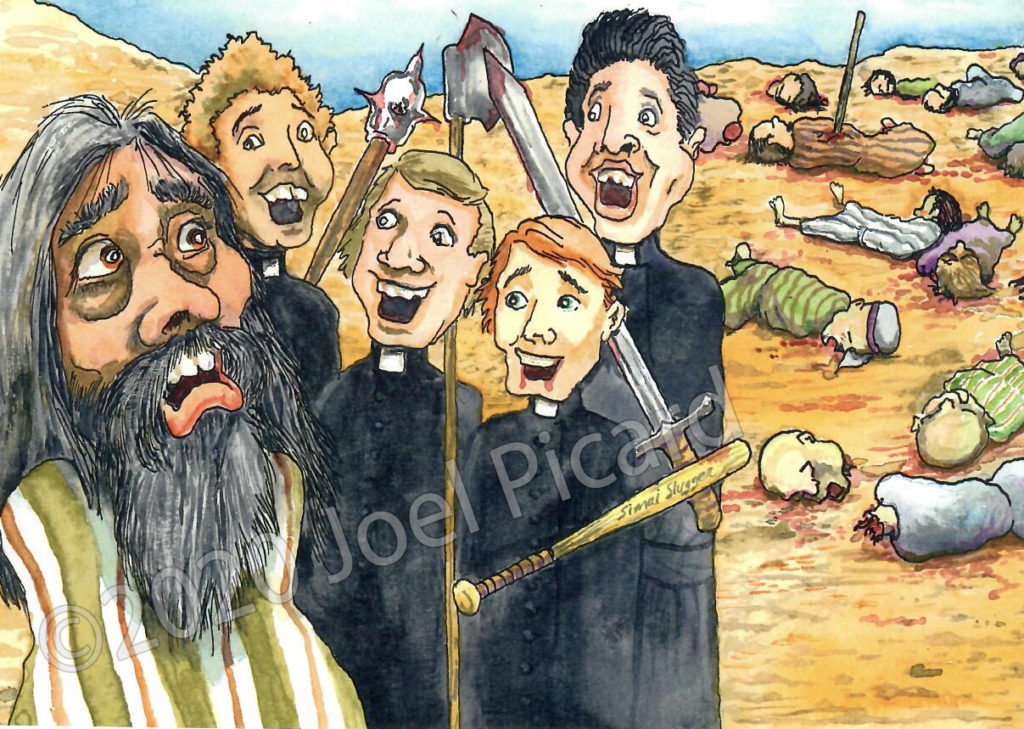Exodus 33B

This is what you call clerical overkill…literally. Where two or three clerics are gathered in my name, there are one or two too many. The Levites step up to the summons of Moses with zeal (see Genesis 34 for a curious allusion to the Levitical tendency towards rampant violence. It might be genetic!) and dispatch 3,000 of their brethren and neighbren. How this slaughter remedies anything is perplexing. This butchery is certainly not described as providing any corrective. There is even an intimation that this action might have been premature (vv. 33-34). The killing is described in such a way as to imply a sort of random and indiscriminate action. If the guilty parties are targeted (which we suppose to be the case, mostly because we want that to be the case), the text, at least, does not tell us as much. And Aaron, who is as guilty as anyone, remains untouched.
It may well be that what we have here in this scene is a picture of exactly what priests do. They slaughter. They kill one party for the guilt of another or for all. An allusion in this direction is implied by Moses’ remark, “You have ordained yourselves today…”; a little in anticipation of their ordination which was forthcoming…another case of taking matters into your own hands in advance of God’s doing so.
All of this leads us toward the book of Leviticus, which seeks to manage and control priestcraft and sacrificial activity rather than to build a religious practice and system from the ground floor up. Priests need to be circumscribed. Sacrificial ritual needs to be carefully prescribed. The precision of such regulations is not indicative of the persnickety nature of the God of Israel, but rather of the human proclivity to improvise and get way out of control. All of this anticipates the New Testament book of Hebrews and its pronouncement that sacrifices do not accomplish the forgiveness of sins.
©2020 Joel Picard